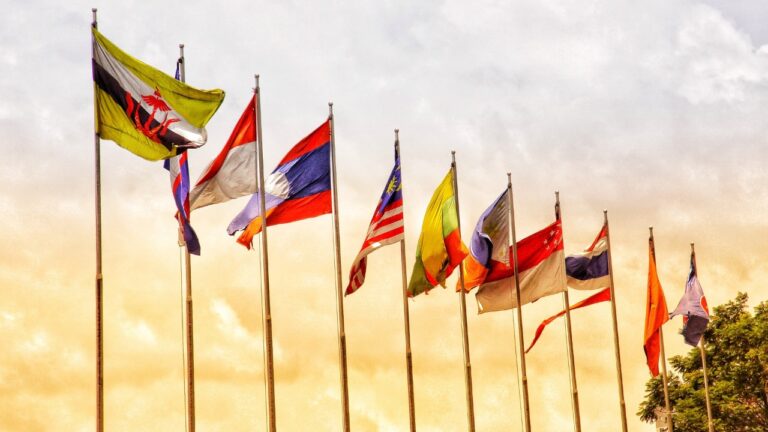ASEAN Countries Have Their Own Attitude Regarding the Taliban

The Taliban victory raised concerns about the reaction from the Jamaah Islamiyah (JI) and Jemaah Ansharud Daulah (JAD) networks in ASEAN countries. Observer for the Study of Political Islam and Southeast Asia, International Relations Study Program, Faculty of Social and Political Sciences, and researcher at the ASEAN Study Center, Sebelas Maret University, Dr. Leni Winarni, argues that the Taliban has a different context and history from JI and JAD both in terms of its formation and the political situation there. All parties should remain vigilant and be prepared for any eventuality.
“Many observers say that the Taliban’s victory in Afghanistan can be an inspiration as well as a trigger for the actions of extremist groups in Indonesia, these predictions can happen,” explained Leni in a written statement to The Apex Chronicles.
Currently, China and Russia are the two countries that have recognized and supported the Taliban’s victory, but they are not part of ASEAN. As for the ASEAN countries themselves, it is still unpredictable, because each member country certainly has different political considerations and policies.
ASEAN countries have the principle of non-intervention, so that the attitude of each member does not influence the decisions of other members and is committed to peace and against violence. In addition, the political and security conditions in the Taliban itself are still not stable and conducive because there are still groups that say they will not give up and are resistant to the Taliban.
Leni sees Indonesia itself as more neutral in viewing this situation, not rashly admitting the Taliban’s rule but also never expressing her disapproval of the Taliban’s victory. Indonesia, as stated by the Government, will still wait and see the possible situation for the next few months in the country.
“The bottom line, it is very clear, the Indonesian government will not compromise on acts of violence. And linked to JAD, JI, and other anti-mainstream groups. If the government finally recognizes the Taliban government, it may not have much effect in reducing violent acts because they already have their own agendas,” said Leni.
Researcher from the Center for Radicalism and Deradicalization or PAKAR, Muhammad Taufiqurrohman, saw that new spirits emerged from the Taliban’s victory in Afghanistan. In fact, in Solo, Central Java, support for the Taliban has been widely echoed since March 2019 when the Taliban were in Doha, Qatar to negotiate with the United States.
Taufiqurrohman also mentioned various Islamic groups that support the Taliban, including Hizbut Tahrir, PKS, the 212 Alumni Brotherhood (ex-FPI), the Indonesian Young Ulema and Intellectual Council (MIUMI), and the Indonesian Muslim League. As for the Jihadist groups that showed their support, namely the Indonesian Mujahideen Council, Jamaah Ansharud Syariah, Jemaah Islamiyah, Jamaah Ansharud Khilafah, Jamaah Ansharud Daulah and ex-napiters.
“This makes Indonesian jihadis think that they can do the same thing as the Taliban, overthrow and usurp the government they see as a puppet government and form the Islamic Emirates in Indonesia, which will start from Sumatra,” Taufiq said.
Although these plans and discourses cannot be realized in the near future, Taufiq reminded the Indonesian government, in this case the Police and the National Counter-Terrorism Agency (BNPT), to closely monitor political developments in Afghanistan. The government also needs to monitor Indonesian extremist groups if in the end they really decide to leave and emigrate to Afghanistan.
“The government must also be aware of the long-term risks if later Islamic jihadists take over the legitimate government, because the Taliban will be their role models, including being wary of former convicts who show their support for the Taliban,” said Taufiq.
The head of the National Counter-Terrorism Agency, Boy Rafli Amar, reminded young people in Indonesia not to use the Taliban as their role model. He conveyed this in front of reporters during his recent visit to Surakarta City Hall. According to Boy, even though they are not affiliated with ISIS or other terror organizations, the Taliban are trapped in acts of violence which are legally defined as acts of terror and are against the philosophy of our country which is based on the Pancasila ideology.
“So as long as he tries to gain power, there will be a lot of violence that is not in accordance with our national identity,” he said.
Boy realizes that certain parties are trying to rally sympathizers regarding what is happening in Afghanistan. He hopes that people will not follow what the Taliban are doing in their country.
“What the Taliban did is something that should not happen in our country,” he said.
The return of the Taliban to power in Kabul, the capital of Afghanistan, has indeed sparked a reaction from former terrorism convicts as well as Islamic activists in Indonesia. Former Jemaah Islamiyah (JI) member Sofyan Tsauri who is also an observer of terrorism sees that it is very likely that the Taliban will become an inspiration for jihadist activists in Indonesia regardless of whether they understand who the Taliban are and know the difference between the Taliban and Al Qaeda or not.
“The emergence of a new spirit among the brothers is indeed what we are worried about, even though the Taliban is different from JAD (Jamaah Ansharut Daulah which is affiliated to ISIS) and different from JI (Jamaah Islamiyah is affiliated to Al Qaeda),” Sofyan said on Wednesday. (18/8)
In contrast to what Sofyan meant, the Taliban did not interfere with other countries and only focused on Afghanistan. They also do not take allegiance or recruit members from outside their country and have never given invitations to jihadist activists from countries outside the Taliban to come to Afghanistan. According to Sofyan, the Taliban also did not harm women and children.
Nevertheless, Sofyan sees that the application of strict Islamic law which has been a hallmark of the Taliban for a long time will certainly be a special attraction for jihadist activists in Indonesia to come there. Because things like that are what jihad activists are looking for and make them feel comfortable.
“But keep in mind, for years the Taliban has been at war continuously, so it is not certain that the next 20 years will be able to catch up with other countries,” he said.
In addition, there is still a fear there that this Taliban will be the same as the former Taliban who were known for their ruthlessness in implementing Islamic laws without mercy. Although in various releases, the Taliban say that they are now different from the Taliban who used to lead Kabul before the American invasion of the region.
Sofyan’s opinion relates to the evacuation process of Afghans who flocked to the airport to scramble to get into the plane that would take them out of Afghanistan, there was even a video showing them hanging on to the outside of the plane. They fear that the Taliban will not forgive those who have supported the United States.
In the 1996-2001 range, the Taliban had led Afghanistan, known as the Pariah regime. They imposed cruel and brutal stonings and forbade girls from going to school and did not allow women to leave the house without wearing the burka (clothes covering the whole body including the face) and not accompanied by their husbands or male family members.
Not much different, Joko Tri Harmanto, a former terrorism convict who assembled the Bali Bombings in 2002, said that he saw ripples of enthusiasm appear among his fellow jihadists, whom he called the Ikhwan. They talked a lot about the victory achieved by the Taliban on various fronts. Both those who already know about the history of the Taliban and those who just join in the euphoria.
“They seem to be ignited by the spirit of jihad, but if they go there (Afghanistan) I’m sure they will think about it first because the conditions there are still uncertain, right,” he said.
Head of Sub-Directorate for Community Development, Directorate of BNPT Deradicalization, Col. Solahudin Nasution said that what happened in Afghanistan would not make much difference in Indonesia. Whether or not there is victory in the Taliban, there is always turmoil among jihadists in Indonesia.
“There is no special anticipation, so far we have always anticipated the possibility of upheavals in Indonesia and around the world,” he said.
Looking at the characteristics of the Taliban, Nasution said that there is no need to worry too much considering that the Taliban has a different movement from ISIS and AL Qaeda.
“Has there ever been an invitation or call from the Taliban to go there? The Taliban never ordered them to go there, moreover their current condition is still difficult, including their finances,” said Nasution.



